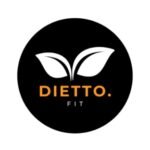Digestive and Gastrointestinal
Our Solutions
- Sports Nutrition
- Renal Nutrition
- Oncology Nutrition
- Corporate Nutrition
- Cardiovascular Disease Diet
- Therapeutic nutrition
- Naturopathy
- Gerontology and geriatric
- Pediatric nutrition
- Gastrointestinal (GI) disease nutrition
- Liver and pancreas
- Pancreas Health and Nutrition
- Obesity and underweight nutrition
- Infections and fevers nutrition
- Anaemia nutrition
- Pre and post pregnancy nutrition
Health Conditons

Digestive and Gastrointestinal
Disruptions or abnormalities in the function of the digestive system can lead to various digestive disorders, such as gastroesophageal reflux disease (GERD), irritable bowel syndrome (IBS), inflammatory bowel disease (IBD). Maintaining a healthy diet, staying hydrated, managing stress, and avoiding smoking and excessive alcohol intake can help support digestive health and prevent digestive disorders. A balanced diet that includes a variety of nutrient-rich foods, supports the health and function of the gastrointestinal tract, promotes optimal digestion, reduces the risk of digestive disorders, and supports overall health and well-being. It’s essential for individuals to prioritize nutrition and adopt healthy eating habits to support their GI health and prevent digestive issues.
Providing Essential Nutrients: The GI tract requires a variety of nutrients to maintain its structure and function. Nutrients such as vitamins, minerals, proteins, carbohydrates, and fats obtained from food are essential for repairing and regenerating the cells lining the GI tract, supporting digestive enzyme production, and promoting overall GI health.
Supporting Digestive Enzymes: Digestive enzymes are proteins that facilitate the breakdown of food molecules into smaller, absorbable nutrients. Proper nutrition provides the raw materials necessary for the production of digestive enzymes, ensuring efficient digestion and nutrient absorption in the GI tract.
Promoting Gut Microbiota Health: The gut microbiota, comprised of trillions of microorganisms, plays a crucial role in digestive function, immune regulation, and overall health. Nutrition influences the composition and diversity of gut microbiota, with fiber-rich foods, prebiotics, and probiotics supporting the growth of beneficial bacteria and maintaining a healthy balance of gut microflora.
Maintaining Gut Barrier Function: The intestinal barrier, composed of epithelial cells and tight junction proteins, acts as a physical barrier that prevents harmful substances, toxins, and pathogens from entering the bloodstream. Proper nutrition supports the integrity and function of the gut barrier, reducing the risk of leaky gut syndrome and intestinal permeability.
Supporting Bowel Regularity: Adequate intake of dietary fiber, found in fruits, vegetables, whole grains, legumes, nuts, and seeds, promotes bowel regularity by adding bulk to stool, softening it, and facilitating its passage through the GI tract. Fiber also helps prevent constipation and supports healthy digestion.
Reducing Inflammation: Chronic inflammation in the GI tract is associated with various digestive disorders, including inflammatory bowel disease (IBD), Crohn’s disease, and ulcerative colitis. Anti-inflammatory nutrients and phytochemicals found in fruits, vegetables, fatty fish, nuts, seeds, and olive oil can help reduce inflammation in the GI tract and support digestive health.
Managing Gastrointestinal Disorders: For individuals with specific GI disorders or conditions such as gastroesophageal reflux disease (GERD), irritable bowel syndrome (IBS), celiac disease, or diverticulitis, nutrition plays a key role in managing symptoms and promoting GI comfort. Personalized dietary interventions, such as avoiding trigger foods, following a low-FODMAP diet, or adopting a gluten-free diet, can help alleviate symptoms and improve quality of life.
Thanks for the great service. I didn’t even need training. I love fitness. Fitness impressed me on multiple levels.
– William Blake
Our Services Benefits

Schedule Exercise
- Personalized guidelines based on your biological needs and unique circumstances.
- Simple, practical tips and advice to help you achieve your nutritional needs.
- Advice on ways to deal with weight loss, fatigue, and nausea brought on by illness or treatment side effects.
- Plans for families or caregivers in support of your nutritional needs.
- Recipes, lists of foods, dietary supplements, and vitamins.

- clear-fluid diets
- full- fluid diets
- soft diets
- regular normal diets
- oral supplements
- tube feeding
- high fibre diet
- Alkaline-ash diet
- Sodium restricted diets
- Moderate to low fat diet
- High carbohydrate diet
- High caloric fluid and soft diet
